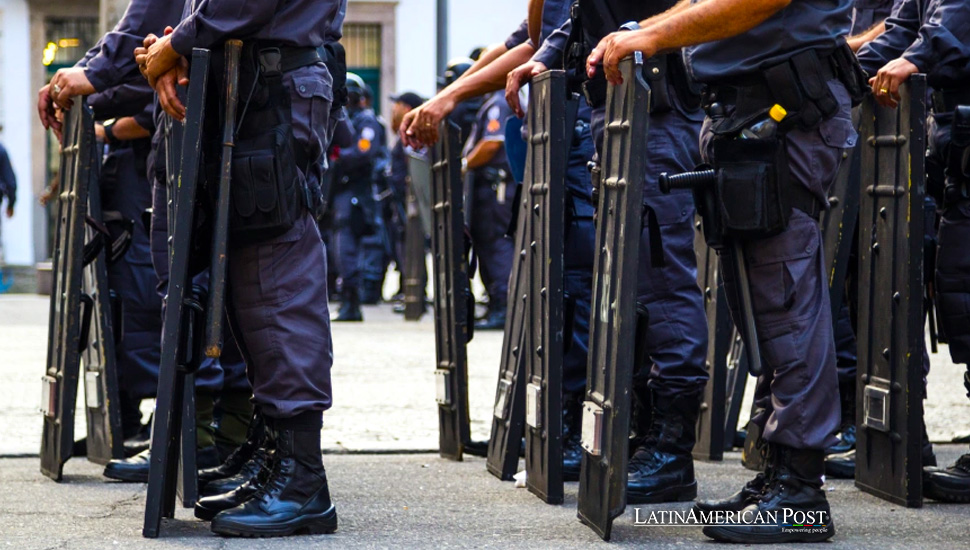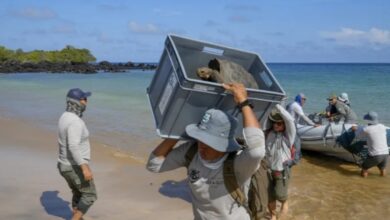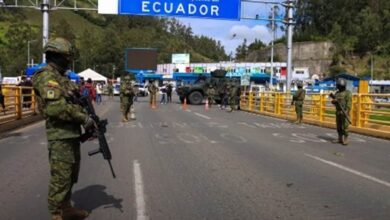Brazil Offers Police Support to Ecuador Amidst Violence Crisis

In a significant show of regional solidarity, the Brazilian government has extended an offer to send police personnel to Ecuador. This move comes in response to the growing crisis of violence that has engulfed the South American nation, as disclosed in a communique released this Saturday.
Brazil’s Response to Ecuador’s Call for Assistance
The Director-General of the Brazilian Federal Police, Andrei Rodrigues, addressed Ameripol, the Community of Police of America, which serves as a cooperative mechanism among continental countries, with a list of proposals to support the Ecuadorian government. These proposals arrived after Ecuador declared a state of emergency to combat criminal gangs.
Among the suggestions put forward is establishing a Brazilian Police Attaché in Quito, the capital of Ecuador. This move is intended to “further strengthen cooperation” between the two nations. Additionally, Brazil is prepared to send agents on an “immediate” mission. However, the exact number of personnel was not specified in the document.
Furthermore, Brazilian authorities have expressed readiness to offer intelligence equipment and training courses in investigation and financial analysis. The goal of these efforts is to financially destabilize criminal organizations.
Cross-Border Collaboration: Identifying Criminals in Ecuador
The Brazilian Police also propose to assist Ecuadorian security forces in identifying Brazilian criminals operating within Ecuador. This initiative highlights the international scope of criminal activities and the need for cross-border cooperation in tackling them.
These proposals follow a day after a special videoconference meeting of Ameripol, which was convened by Brazil to discuss support measures for Ecuador. The meeting saw participation from Ecuador’s Interior Minister, Mónica Palencia, and representatives from the police forces of 16 Latin American countries, per Brazilian authorities’ statement.
Luiz Inácio Lula da Silva’s government strongly condemned Ecuador’s violence crisis and expressed solidarity with Daniel Noboa’s administration.
Addressing the Root Cause: Financial Stability of Criminal Organizations
The incidents in Ecuador escalated shortly after authorities launched operations in a Guayaquil prison to search for José Adolfo Macías, also known as ‘Fito.’ Fito is the leader of ‘Los Choneros,’ one of the country’s most dangerous criminal gangs, and is believed to have escaped last weekend.
Brazil’s offer to assist Ecuador is a testament to the increasing recognition of the need for cooperative efforts in addressing regional security challenges. The violence in Ecuador, which has prompted the state of emergency, underscores the complexity and severity of criminal activities in the region. The presence of Brazilian Police and their expertise, particularly in intelligence and public safety, could be pivotal in helping Ecuador navigate this crisis.
The proposed establishment of a Brazilian Police Attaché in Quito signifies a long-term commitment to bilateral cooperation in law enforcement. This move could facilitate ongoing communication and coordination between the two countries, enhancing the effectiveness of their crime-fighting strategies.
Sophisticated Crime-Fighting Techniques
The willingness of Brazil to provide intelligence equipment and training in investigation and financial analysis also reflects a sophisticated understanding of modern crime-fighting techniques. By focusing on the financial aspects of criminal organizations, Brazil and Ecuador aim to strike at the heart of these groups’ operations, potentially crippling their ability to function.
Moreover, the identification and apprehension of Brazilian criminals in Ecuador is crucial to this cooperation. It addresses the transnational nature of criminal networks and their challenges to individual countries. Tracking and capturing criminals across borders is vital for maintaining security and order in both nations.
Regional Collaboration: Brazil’s Proactive Stance
Brazil’s proactive stance in offering assistance to Ecuador through Ameripol is a notable example of regional cooperation in Latin America. The involvement of 16 countries in the Ameripol conference illustrates a collective recognition of the threat posed by organized crime and the need for a unified response.
The crisis in Ecuador, marked by the escape of a notorious gang leader and the subsequent declaration of a state of emergency, has put the spotlight on the challenges faced by Latin American countries in maintaining public safety and combating organized crime. With its immediate aid and long-term strategic support, Brazil’s response offers a model for regional collaboration in addressing these challenges.
Brazil’s Model for Regional Collaboration
This approach by Brazil, under the leadership of President Lula da Silva, also signals a shift towards a more collaborative and supportive role in regional affairs. By extending a helping hand to Ecuador during this crisis, Brazil is aiding a neighbor and strengthening regional stability and security. This collaboration could catalyze further joint efforts among Latin American countries to combat the pervasive issue of organized crime.
Also read: Escalating Violence in Ecuador Sparks U.S. Condemnation and Calls for Cooperation
Brazil’s offer to send police support to Ecuador represents a significant step in regional cooperation against criminal activities. The proposals for an Attaché in Quito, immediate deployment of agents, and sharing of intelligence and training resources underscore the commitment of both nations to work together in restoring peace and order. As Ecuador grapples with its violence crisis, Brazil’s support could be a turning point in the fight against organized crime in South America.





